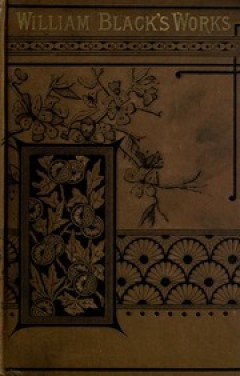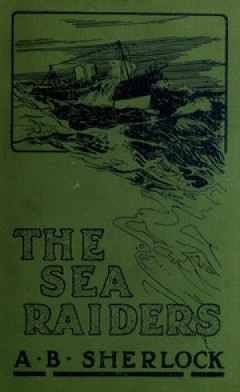Filter by

A Historical and Legal Study of Sovereignty in the Canadian North: Terrestria…
Gordon W. Smith, PhD, dedicated much of his life to researching Canada's sovereignty in the Arctic. A historian by training, his 1952 dissertation from Columbia University on "The Historical and Legal Background of Canada's Arctic Claims" remains a foundational work on the topic, as does his 1966 chapter "Sovereignty in the North: The Canadian Aspect of an International Problem," in R. St. J. M…
- Edition
- -
- ISBN/ISSN
- 9781552387771
- Collation
- -
- Series Title
- -
- Call Number
- -

A Heart Beating Hard
A Heart Beating Hard is about looking long and deep into the invisible life of a person we too often pass by. It is the story of Marjorie, who works in the Store and does her best to go on with the days; of Margie, growing up in Apartment #2 with the sounds of Ma and Gram and Him all around; and of Marge, who should never have been, who should have been helped. In A Heart Beating Hard, we see h…
- Edition
- -
- ISBN/ISSN
- 9780472900206
- Collation
- 247 hlm
- Series Title
- -
- Call Number
- -

A Cultural History of the Disneyland Theme Parks : Middle Class Kingdoms
The first comparative historical study of the six Disneyland theme parks around the world in five distinct cultures: the USA, Tokyo, Paris, Hong Kong and Shanghai. Situates the parks in their respective historic contexts at the time of their opening, and considers the part that class plays in the success or failure of these ventures.
- Edition
- -
- ISBN/ISSN
- 9781789382457
- Collation
- -
- Series Title
- -
- Call Number
- 900 MIT c

Empire Under the Microscope
This open access book considers science and empire, and the stories we tell ourselves about them. Using British Nobel laureate Ronald Ross (1857-1932) and his colleagues as access points to a wider professional culture, Empire Under the Microscope explores the cultural history of parasitology and its relationships with the literary and historical imagination between 1885 and 1935. Emilie Taylor…
- Edition
- 1
- ISBN/ISSN
- 978-3-030-84717-3
- Collation
- -
- Series Title
- Palgrave Studies in Literature, Science and Medicine
- Call Number
- XIII, 294

Reading Breath in Literature
This open access book presents five different approaches to reading breath in literature, in response to texts from a range of historical, geographical and cultural environments. Breath, for all its ubiquity in literary texts, has received little attention as a transhistorical literary device. Drawing together scholars of Medieval Romance, Early Modern Drama, Fin de Siècle Aesthetics, American…
- Edition
- 1
- ISBN/ISSN
- 978-3-319-99948-7
- Collation
- -
- Series Title
- Palgrave Studies in Literature, Science and Medicine
- Call Number
- X, 134

Pynchon and Philosophy
Pynchon and Philosophy radically reworks our readings of Thomas Pynchon alongside the theoretical perspectives of Wittgenstein, Foucault and Adorno. Rigorous yet readable, Pynchon and Philosophy seeks to recover philosophical readings of Pynchon that work harmoniously, rather than antagonistically, resulting in a wholly fresh approach. Dr. Martin Paul Eve is a lecturer in literature at the…
- Edition
- 1
- ISBN/ISSN
- 978-1-137-40550-0
- Collation
- -
- Series Title
- -
- Call Number
- XIII, 229

The War Tiger : or, Adventures and wonderful fortunes of the young sea chief …
As free use is made in the following story of the names of personages who played important parts in and during the last Tartar Conquest of China, the Author believes that a slight sketch of that turbulent epoch may not be uninteresting to his readers. Twenty-two dynasties have given some two hundred and forty Emperors to the Celestial Kingdom; of these, two were Tartars, who obtained the thr…
- Edition
- -
- ISBN/ISSN
- -
- Collation
- 337 p. ; 19 cm
- Series Title
- -
- Call Number
- -

A Princess of Thule
A Princess of Thule is a novel written by William Black and published in 1892. The story is set in the remote and rugged landscape of the Scottish Hebrides, where a young and beautiful woman named Sheila Mackenzie lives with her father, a wealthy and powerful landowner. Sheila is known for her wild and independent spirit, and she has captured the hearts of many of the local men, including the h…
- Edition
- -
- ISBN/ISSN
- -
- Collation
- [513] p,Issued with author's
- Series Title
- -
- Call Number
- -

The Sea Raiders
- Edition
- -
- ISBN/ISSN
- -
- Collation
- 189, 16 p., [1] leaf of plate :
- Series Title
- -
- Call Number
- -
- Edition
- -
- ISBN/ISSN
- -
- Collation
- 189, 16 p., [1] leaf of plate :
- Series Title
- -
- Call Number
- -

Rogue archives :digital cultural memory and media fandom
"The task of archiving was once entrusted only to museums, libraries, and other institutions that acted as repositories of culture in material form. But with the rise of digital networked media, a multitude of self-designated archivists -- fans, pirates, hackers -- have become practitioners of cultural preservation on the Internet. These nonprofessional archivists have democratized cultural mem…
- Edition
- -
- ISBN/ISSN
- 9780262336772
- Collation
- 1 online resource (x, 430 pages)
- Series Title
- -
- Call Number
- -
 Computer Science, Information & General Works
Computer Science, Information & General Works  Philosophy & Psychology
Philosophy & Psychology  Religion
Religion  Social Sciences
Social Sciences  Language
Language  Pure Science
Pure Science  Applied Sciences
Applied Sciences  Art & Recreation
Art & Recreation  Literature
Literature  History & Geography
History & Geography